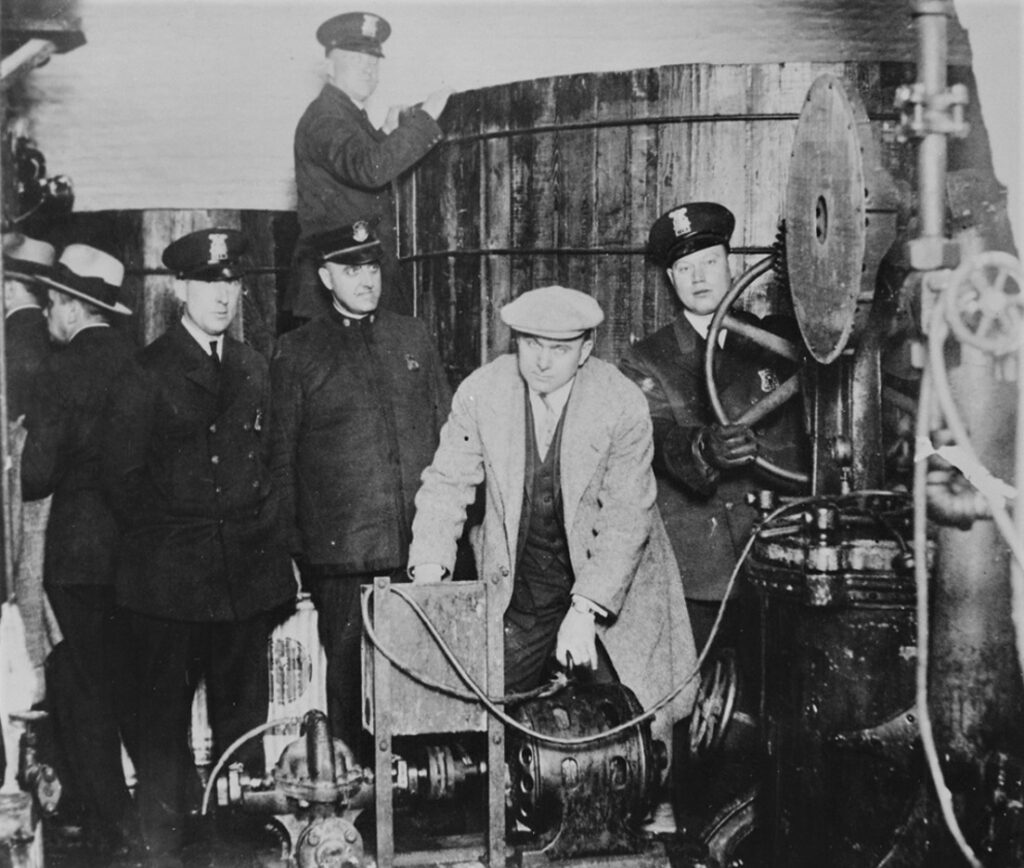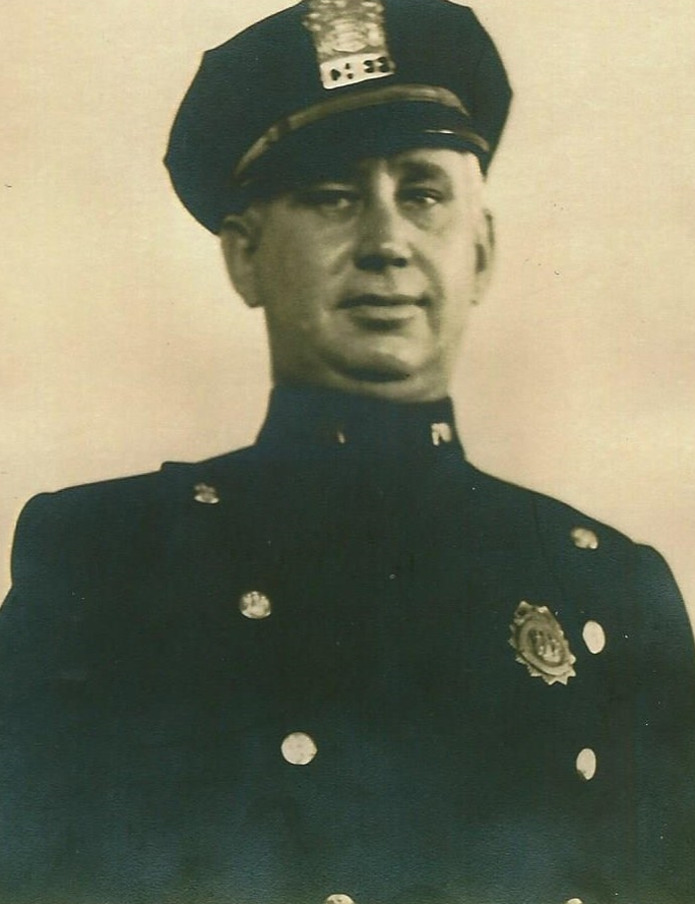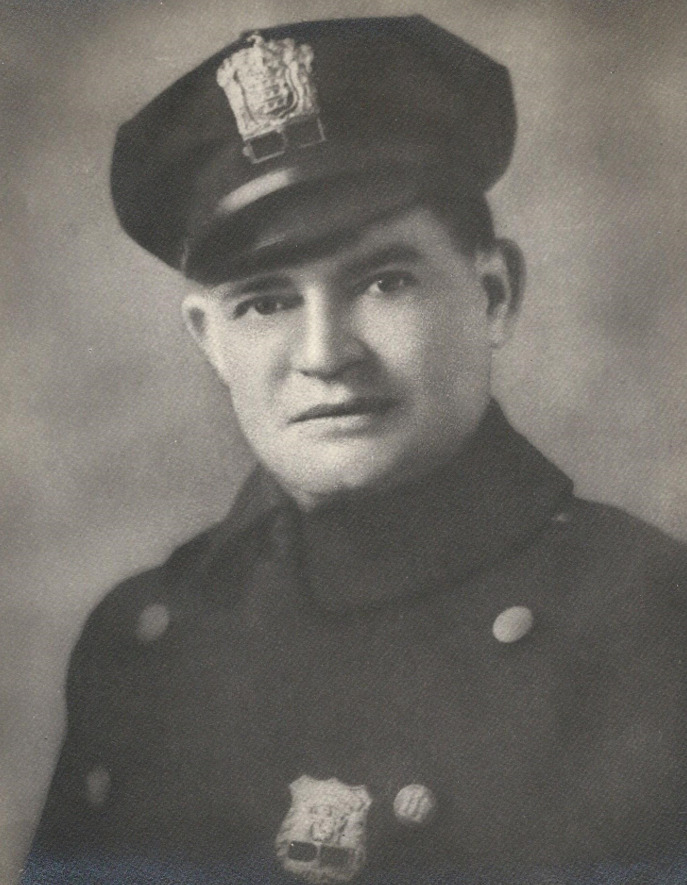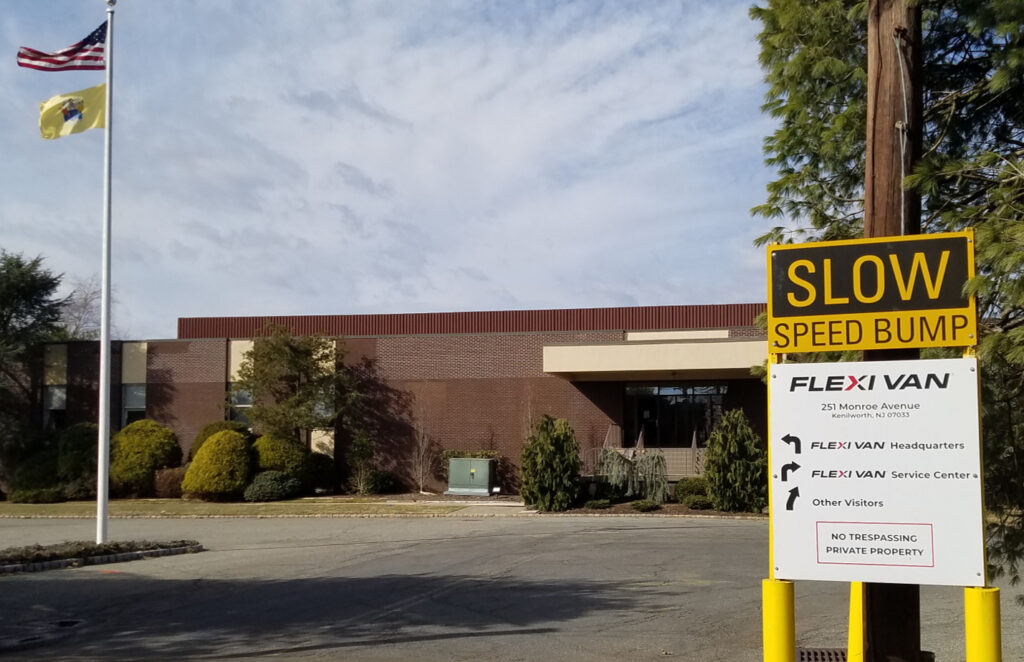
Prohibition Days – The New Year’s Eve raid – Part 2 of 3
The Prohibition Amendment to the US Constitution effective in 1920 and the Volstead Act enforcing it, continued to be defied across America and in Kenilworth. One of the biggest hauls of apparatus and liquor occurred here on the afternoon of New Year’s Eve, 1928.
For some time, the Kenilworth police department under Chief Alfred Vardalis, had been keeping a watchful eye on the Kayden Chemical Co. located at the west end of Monroe Ave. on the old American Can Co. complex. The factory manufactured paints, but local officials were wary that more than paint was being made there. The site is now home to the Flexi Van Corp.
Earlier on New Year’s Eve day, Chief Vardalis notified federal agents that it was time to raid the plant. In short order, Vardalis, accompanied by local officers George Conklin and Andrew Ruscansky, and a number of federal agents, swarmed the facility.
They discovered a treasure trove of expensive and modern distilling equipment and liquor-making products. There was a large cache of finished liquor ready to be shipped out that evening – just in time for New Year’s Eve and New Year’s Day celebrations.
The seizure included 5,000 gallons of distilled whiskey. Also uncovered was 200 gallons of molasses needed for the liquor-making process.
Equipment-wise they came upon two stills. It was reported that the stills were “the largest yet taken by the Federal people.” It was estimated that the illegal operation had the capacity to produce several thousands of gallons of liquor a day.
Kenilworth police and federal agents also found a number of vats that could hold many thousands of gallons of finished product. They also came upon a boiler plant that could handle large quantities of mash. Further exploration of the plant uncovered thousands of five-gallon containers and cartons waiting to be filled.
The estimated value of all items seized was $100,000 – a staggering sum in 1928. The plant equipment was disassembled and the parts, liquor, and other products taken away by the federal agents.
It was determined that the whiskey operation had only recently started and that nothing had yet been shipped out. Two people were arrested. One was a man from Newark and the other the superintendent of the factory. Both claimed no knowledge of the illicit activity. An investigation continued, however, to find the actual owners of the clandestine operation.
Read about the “Big farmhouse raid” and more in Part 3 of “Prohibition Days.” The article will appear in the June issue of Kenilworth Business Life.
Research provided by Walter E. Boright, Ed. D., historian, and Historic Signs, Inc. Unless otherwise noted, local data credited to the Cranford Citizen and Chronicle newspaper archives, 1920s-1930s. Persons with inquiries about this or other aspects of Kenilworth history may contact Dr. Boright at drbori@aol.com or 908-256-5200.



